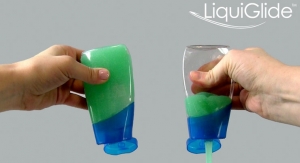05.29.15
Industry analyst firm n-tech Research has announced the release of a new report titled “Markets for Self-Healing Materials: 2015-2022.” According to the report self-healing materials (reversible polymers, inorganic capsule and vascular systems, biomaterials, relevant shape memory materials and other self-healing coatings) will grow to around $2.7 billion by 2020.
The report is the latest deliverable from n-tech’s extensive coverage of smart materials. Other recent n-tech reports have included studies of smart windows, smart coatings and smart surfaces. n-tech has been providing coverage of the smart materials business for more than six years and believes that self-healing materials are now one of the most commercially promising smart materials products.
Details about the report, including a downloadable excerpt are available at: http://ntechresearch.com/market_reports/markets-for-self-healing-materials-2015-2022. This report quantifies the markets for self-healing materials in consumer products (including consumer electronics); construction (products such as self-healing concrete and asphalt); the automotive industry (both interior and exterior surfaces), the energy generation sector (turbines and solar); medicine and healthcare; and military and aerospace.
The report provides eight-year revenue forecasts for self-healing materials in all of the applications covered, with breakouts for the various types of self-healing materials used in each application. It also discusses the business models currently being employed by the firms in the self-healing materials space, as well who n-tech thinks will enter this space in the next few years. Companies discussed in this report include: Acciona, Alstom, Apple, ATFI, Autonomic Materials, Avecom, BASF, Bayer, CEINNMAT, Critical Materials, Duco, Devan, Encore, Evonik, Fescon, Flame Spray Technology, Ford, General Motors, GKN Aerospace, LG, NEI, Nissan, PPG, Sensor Coatings Systems, SLIPS Technologies and Volkswagen.
n-tech estimates that the largest market for self-healing materials will be found in the automotive industry where revenues will reach $1.6 billion by 2020. In this market, suppliers of self-healing materials can build on the existing demand for anti-scratch coatings, as well as the fact that automobile industry is currently very interested in making both the interiors and exteriors of cars more intelligent as part of their competitive strategy. In addition, self-healing materials can bring many practical advantages to the automotive sector including improved asset life and reductions in maintenance and overall cost of ownership.
The market for self-healing materials used in the consumer products sector (mobile electronics, furniture and appliances) is expected to reach around $480 million in 2020. n-tech believes that consumer markets are will be an excellent point of market entry for self-healing materials because the requirements for self-healing consumer products are less demanding than for products the construction industry. In the mobile electronics business, the LG G Flex 2 phone is showing how novel self-healing materials can protect products, perhaps eventually rendering a separate smartphone case unnecessary.
n-tech sees the biggest opportunity from the materials perspective coming from inorganic capsule and vascular materials systems. The market for these materials is negligible now, but will reach $1.3 billion by 2020. The advantages of these capsule/vascular materials systems are that they are truly autonomic needing no outside thermal or light stimulus to self-repair.
The report is the latest deliverable from n-tech’s extensive coverage of smart materials. Other recent n-tech reports have included studies of smart windows, smart coatings and smart surfaces. n-tech has been providing coverage of the smart materials business for more than six years and believes that self-healing materials are now one of the most commercially promising smart materials products.
Details about the report, including a downloadable excerpt are available at: http://ntechresearch.com/market_reports/markets-for-self-healing-materials-2015-2022. This report quantifies the markets for self-healing materials in consumer products (including consumer electronics); construction (products such as self-healing concrete and asphalt); the automotive industry (both interior and exterior surfaces), the energy generation sector (turbines and solar); medicine and healthcare; and military and aerospace.
The report provides eight-year revenue forecasts for self-healing materials in all of the applications covered, with breakouts for the various types of self-healing materials used in each application. It also discusses the business models currently being employed by the firms in the self-healing materials space, as well who n-tech thinks will enter this space in the next few years. Companies discussed in this report include: Acciona, Alstom, Apple, ATFI, Autonomic Materials, Avecom, BASF, Bayer, CEINNMAT, Critical Materials, Duco, Devan, Encore, Evonik, Fescon, Flame Spray Technology, Ford, General Motors, GKN Aerospace, LG, NEI, Nissan, PPG, Sensor Coatings Systems, SLIPS Technologies and Volkswagen.
n-tech estimates that the largest market for self-healing materials will be found in the automotive industry where revenues will reach $1.6 billion by 2020. In this market, suppliers of self-healing materials can build on the existing demand for anti-scratch coatings, as well as the fact that automobile industry is currently very interested in making both the interiors and exteriors of cars more intelligent as part of their competitive strategy. In addition, self-healing materials can bring many practical advantages to the automotive sector including improved asset life and reductions in maintenance and overall cost of ownership.
The market for self-healing materials used in the consumer products sector (mobile electronics, furniture and appliances) is expected to reach around $480 million in 2020. n-tech believes that consumer markets are will be an excellent point of market entry for self-healing materials because the requirements for self-healing consumer products are less demanding than for products the construction industry. In the mobile electronics business, the LG G Flex 2 phone is showing how novel self-healing materials can protect products, perhaps eventually rendering a separate smartphone case unnecessary.
n-tech sees the biggest opportunity from the materials perspective coming from inorganic capsule and vascular materials systems. The market for these materials is negligible now, but will reach $1.3 billion by 2020. The advantages of these capsule/vascular materials systems are that they are truly autonomic needing no outside thermal or light stimulus to self-repair.




